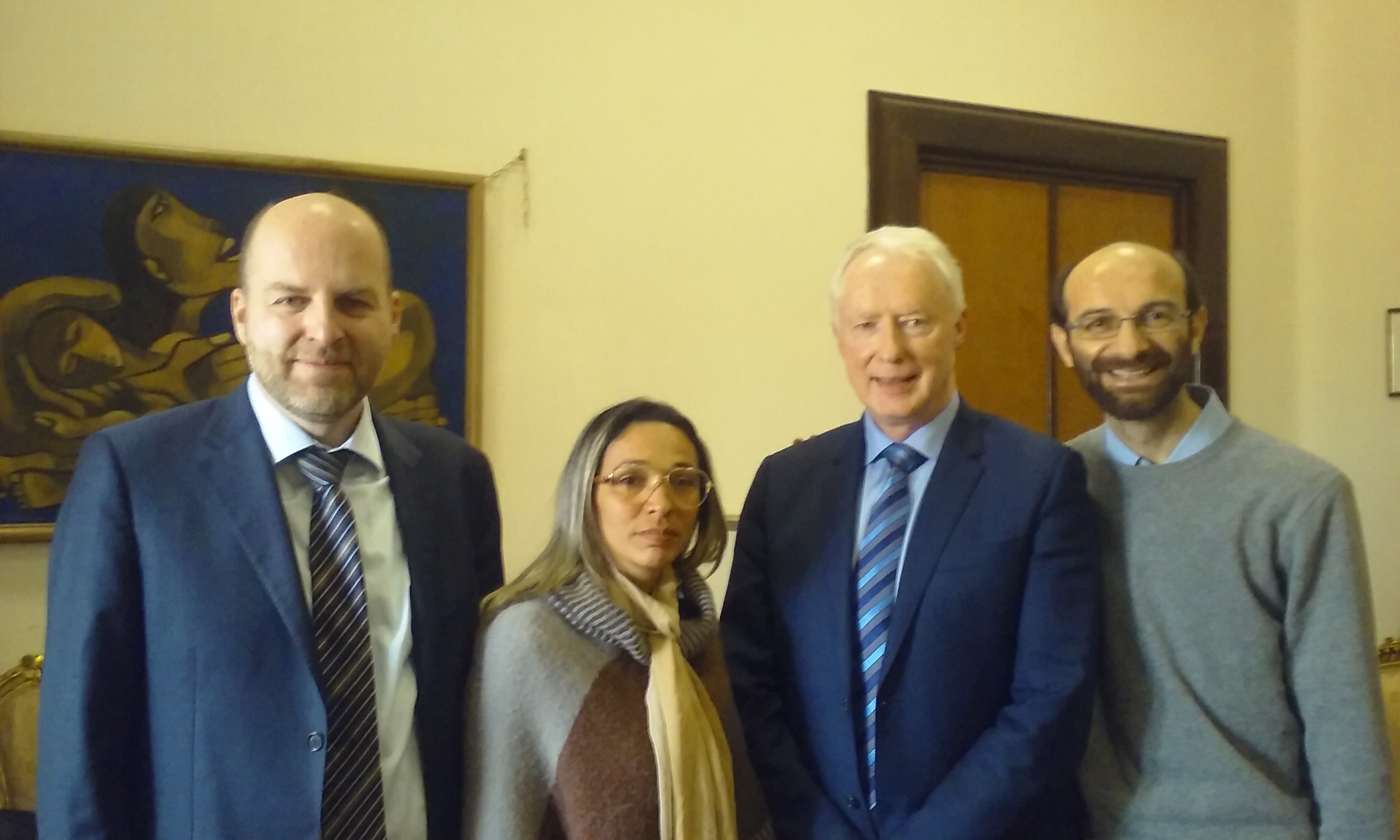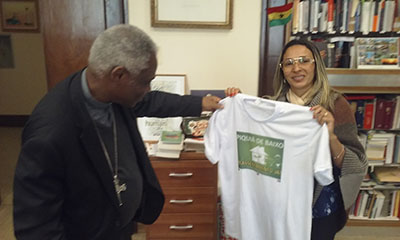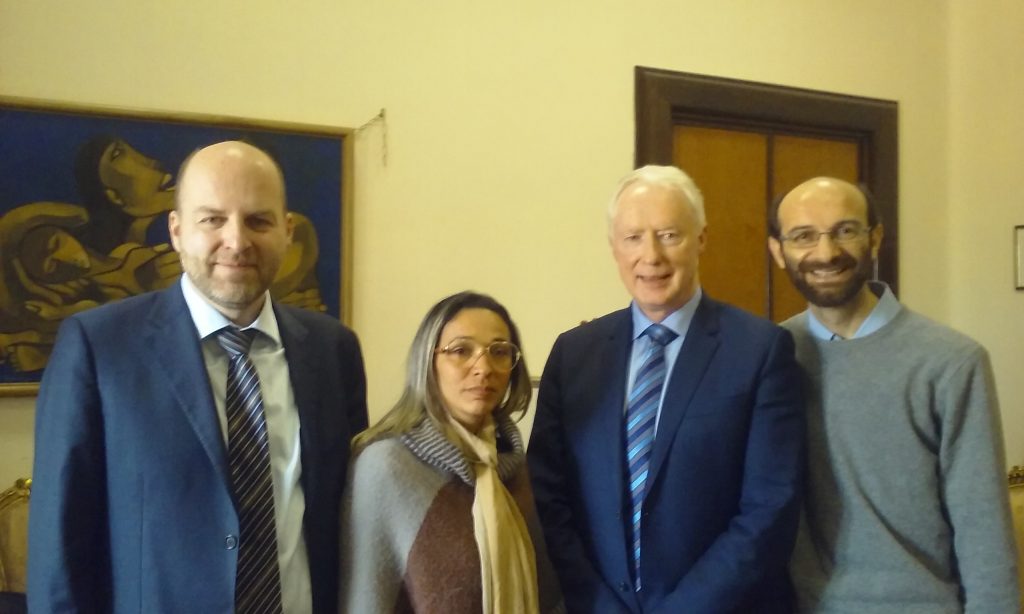
On March 2nd, CIDSE President Éamonn Meehan and Secretary General Bernd Nilles joined Fr. Dario Bossi of the Ecumenical network Iglesias y Mineria and Joselma Alves de Oliveira, a resident of the community of Piquiá de Baixo, to meet with Cardinal Peter Turkson, Prefect of the Dicastery for the Service of Integral Human Development at the Vatican.
The purpose of the meeting was to share the experiences of communities in the Global South impacted by extractive industries, including the threats they face in defending their territories, and to continue to strengthen the collaboration of the Church in denouncing human and environmental rights violations committed by companies.
The meeting happened to be held on the anniversary of the death of Honduran environmental rights activist, Berta Cáceres, who was murdered for defending Indigenous Lenca land against encroaching large-scale development projects that would displace people and harm the environment without providing benefits to local communities. The anniversary of her death opened the discussion on the very real risks faced by human rights defenders, whose activities have become increasingly criminalized. In 2016 alone, 281 human rights defenders (HRDs) were murdered in 25 countries1.
 At the meeting, Joselma spoke to the reasons why HRDs must defend their land and oppose such projects. She described the plight of Piquiá de Baixo, located in the Brazilian Amazon in northern Brazil, where 400 families have been fighting for more than 25 years to end the environmental pollution caused by the steel industries located next to their homes. Families are experiencing serious health consequences from these activities. Earlier in the week, she and Fr. Dario met with the Istituto dei Tumori, a European research institution, to discuss the consequences of iron production and a study on community members’ health conditions that is being conducted. Then they also met UN special rapporteurs in Geneva to present the case and seek further support at the international level.
At the meeting, Joselma spoke to the reasons why HRDs must defend their land and oppose such projects. She described the plight of Piquiá de Baixo, located in the Brazilian Amazon in northern Brazil, where 400 families have been fighting for more than 25 years to end the environmental pollution caused by the steel industries located next to their homes. Families are experiencing serious health consequences from these activities. Earlier in the week, she and Fr. Dario met with the Istituto dei Tumori, a European research institution, to discuss the consequences of iron production and a study on community members’ health conditions that is being conducted. Then they also met UN special rapporteurs in Geneva to present the case and seek further support at the international level.
In the meeting with Cardinal Turkson, CIDSE representatives stressed that businesses need to respect human rights no matter where they operate and asked that the Church help to emphasize these standards. “There are legal obligations and binding standards that companies need to respect as a minimum. To avoid negative impacts of corporate driven dialogues, they shall not undermine mandatory standards and clearly aim at higher ethical, social and ecological standards. Dialogues with communities need to meet certain conditions, such as taking place locally, and including critical perspectives, local administrations, those broadly affected, as well as organizations working with these communities. “, said Bernd Nilles at the meeting.
CIDSE also sought Church support for the international legally binding instrument on transnational corporations and other business enterprises with respect to human rights (the UN binding treaty on Businesses and Human Rights) and expressed hope that the Church would encourage world leaders to stand in favour of this treaty.
Fr. Dario informed the Cardinal of the fruitful ongoing collaboration with the Church in Latin America . He spoke of joint work between Iglesias y Mineria and the Justice and Solidarity Department of the Latin American Episcopal Conference (CELAM) to protect human rights defenders, promote the land rights of communities and strengthen local training initiatives and discussions on mining between churches and communities. CIDSE supports the collaboration between Iglesias y Mineria and CELAM and initiatives to foster discussions on integral ecology as promoted by Pope Francis.
1http://www.liberties.eu/en/news/the-threats-to-human-rights-defenders-2016

